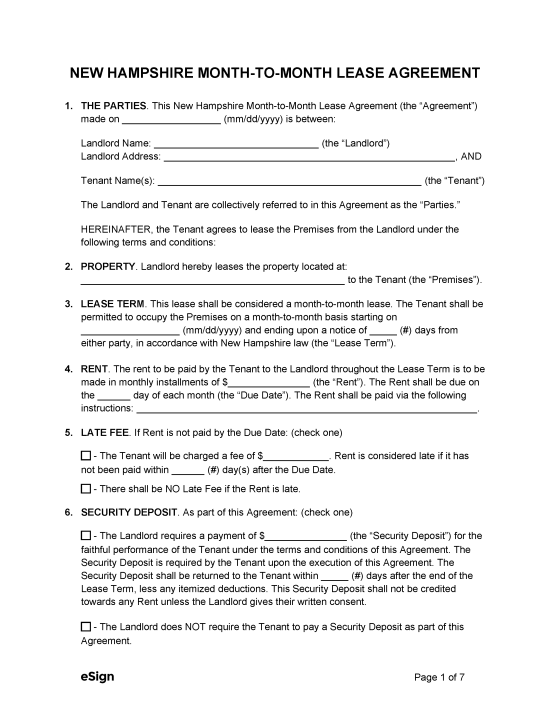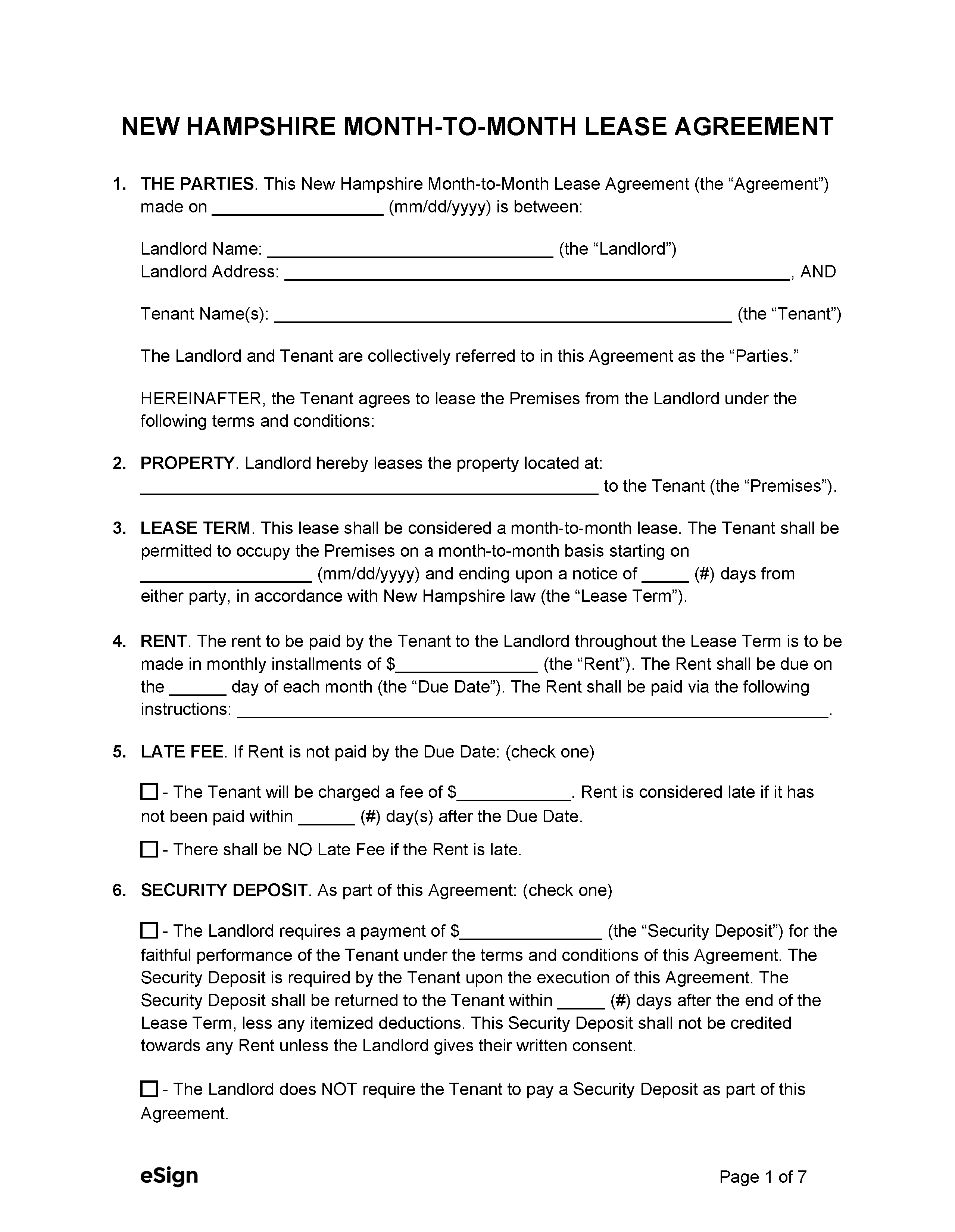Rental Application – An application can be used during the screening process to gather essential information from prospective renters.
Month-to-Month Laws
- Termination Notice – Landlords and tenants can terminate a month-to-month lease with 30 days’ notice.[1]
- Rent Increase Notice – Written notice must be provided to tenants at least 30 days before any rent increase.[2]
Required Disclosures (3)
- Lead-Based Paint Disclosure (PDF) – In accordance with federal law, a lead-based paint disclosure must be delivered to prospective tenants if the rental unit was constructed before 1978.[3]
- Repair Notice (PDF) – Tenants must receive a written notice informing them that if there are necessary repairs, they have five days from moving in to report them to the landlord.[4]
- Security Deposit Receipt – If the security deposit was not provided in the form of a personal check, bank check, or government-issued check, a signed receipt must be delivered to the tenant.[5]

